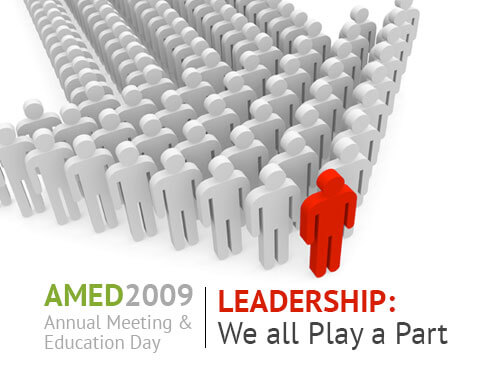Annual Meeting and Education Day
June 24, 2009
The College’s Annual Meeting and Education Day took place on June 24, 2009 at the Metro Toronto Convention Centre. Close to 550 members were in attendance and the response to date has been extremely positive.
Presentation slides are available to download by clicking on the speaker’s name below.
We would like to thank all the speakers who made the day such a great success.
We look forward to welcoming you again next year!
Keynote Address
Building Your Advocacy Toolkit: How to Make the Professional Appropriately Political
Lauren Rothman, RSW
Since the education day focuses on leadership and how everyone plays a part in it, the keynote address will highlight the importance of advocacy in establishing a high level of practice and how the individual’s role is critical. Laurel will present some ideas about building your own advocacy toolkit to strengthen the interface between the work we do with individuals and families and the undeniable need for systemic reform.
Afternoon Cuncurrent Sessions
Session A: 1:30 pm – 2:30 pm
Protecting the Public Interest: The Critical Role of Ethics in Governance and Management Leadership
Claudia Newman, RSW
The literature strongly indicates that you ignore ethics at your organizational peril. Not only may you lose the public trust in the work that you do, resulting in complaints to costly litigation, the overall corporate culture is weakened. Creating a culture of ethical excellence starts at the board level. Come examine this culture’s benefits and key components, beginning with board governance and management leadership, concluding with a practical framework for ethical decision-making.
Operational Stress Injury Clinics: The Key Role of Social Work
Shelley Hale, RSSW, RSW and Anne Bailliu, RSW
With the number of Veterans Affairs clients with a psychiatric condition on the rise over the past five years, a number of operational stress injury clinics have been opened across the country. This breakout session will focus on what these clinics do, how the network of clinics function across the country and how social workers are true members of an interdisciplinary team.
Traditional Healing Methods and Current Social Work Practice: An Advantageous Partnership
Bill Hill, RSW
Attendees will have the opportunity to experience drumming and song and an introduction to the Medicine Wheel that deals with the physical, mental, emotional and spiritual aspects of clients. Ceremonies will provide an understanding for those providing social work and social service work services in mainstream society to First Nations clients.
Clinical Supervision in Contemporary Organizations
Marion Bogo, RSW
Social workers perceive the importance of clinical supervision to enhance their professional development. Continuous changes in contemporary organizations have led to new opportunities as well as challenges for supervision. Based on current research in child welfare, mental health and hospital settings, this session will present current challenges and responses to access quality clinical supervision for social workers.
Afternoon Cuncurrent Sessions
Session B: 2:45 pm – 3:45 pm
When the Recession Comes Home: Loss, Grief and Resilience
Eunice Gorman, RSW
This presentation will look at reactions to today’s economic downturn that often accompany the worry, stress, anger and fear but are rarely talked about, namely loss and grief. The impact of job loss, scaled back spending and the friction in families caused by these difficult times will be examined. In particular, we will look at children caught up in the stressful reactions and responses at home and in their communities. How we know when there is trouble brewing and what we can do to promote protective factors and resilience will be discussed.
Innovations in Social Work Practice with Older Adults and Their Families
Peggy Solomon, RSW, Renee Climans, RSW, Elsa Marziali, Ph.D.
Two presentations about innovative group work at Baycrest Geriatric Health System will be offered. The first will pertain to educational/support programs using technology with the aim of replicating face-to-face groups via web-based videoconferencing to clients and family caregivers in their homes. The second will pertain to child survivors of the Holocaust.
SexAbility: Challenging Misperceptions
Lynda Roy, RSW
SexAbility is a peer education program run out of the Anne Johnston Health Station. Volunteer peer facilitators are trained in areas of workshop facilitation and sexual health. SexAbility challenges not only the common misperception that people with physical disabilities are asexual but also advocates for the deconstruction of how sex and sexuality is currently constructed in our society and how this impacts the individual with a disability.
The Future is Now: Strategic Directions and the Continuing Competence Program
Glenda McDonald, RSW
Hot on the heels of the College Council’s 2009 strategic planning day, this presentation will provide information about the College’s strategic directions for the next three years, as well as the background and framework for the new Continuing Competence Program.
